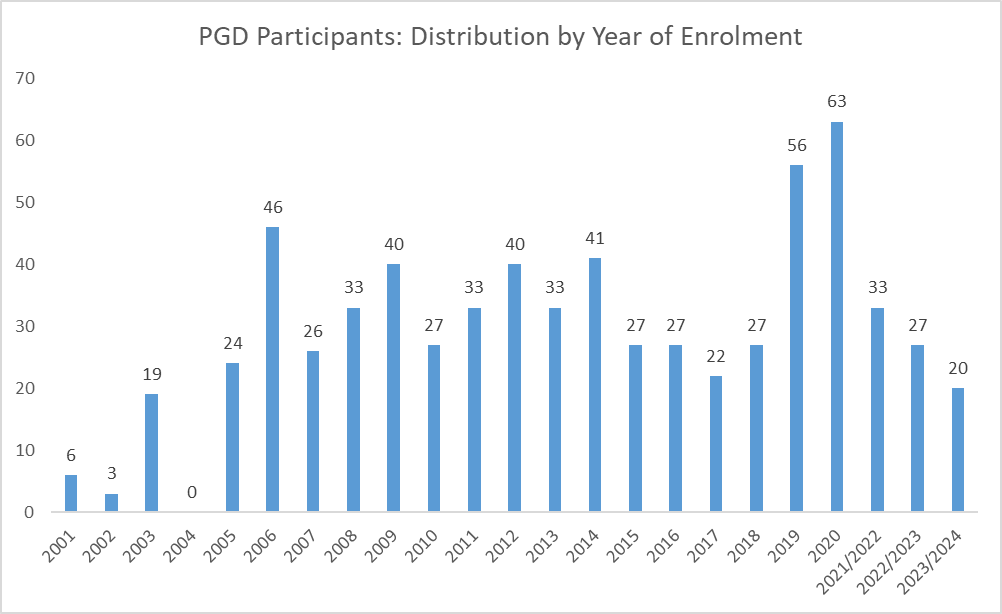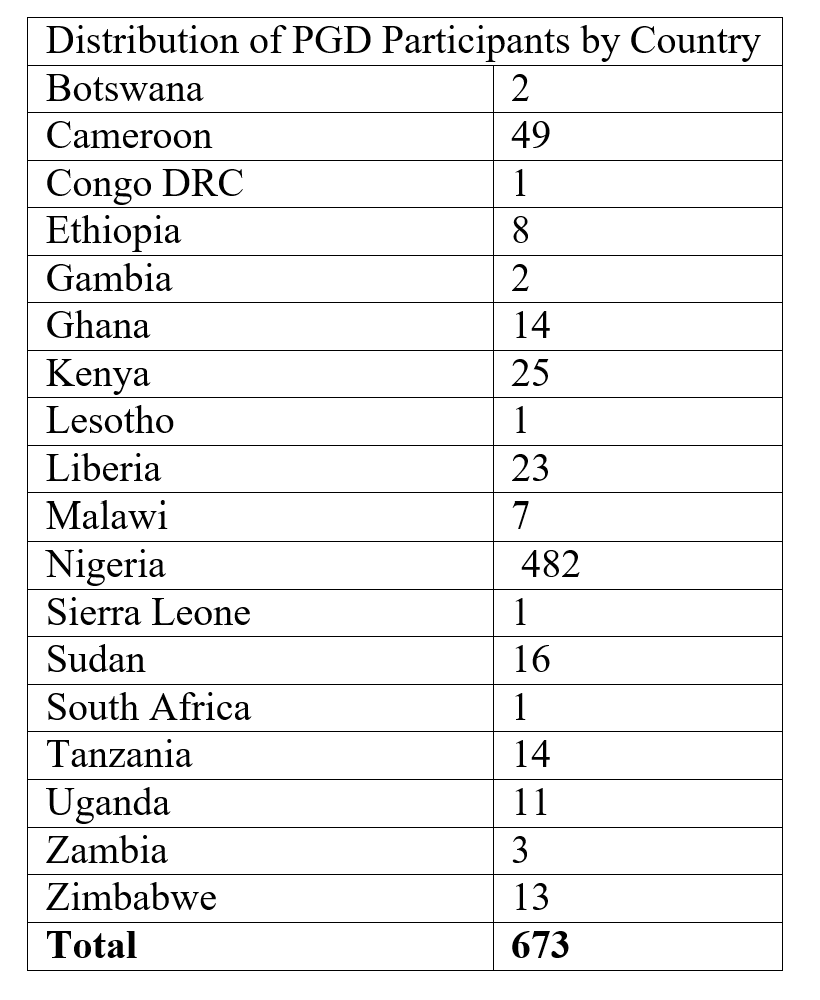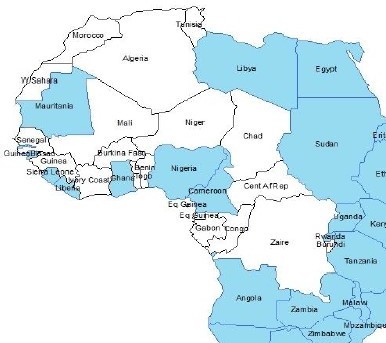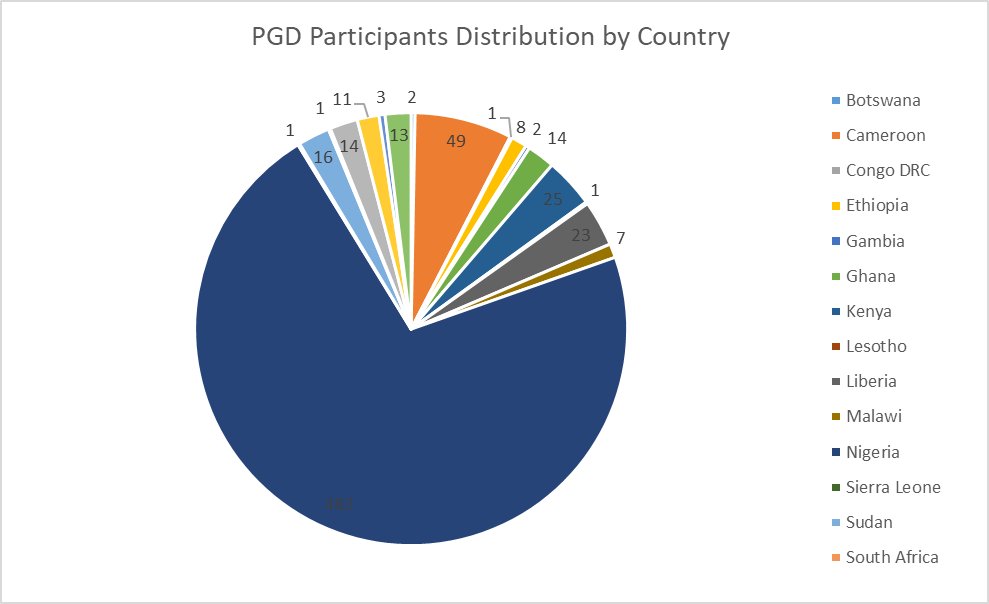The African Regional Centre for Space Science and Technology Education in English (ARCSSTEE) is a United Nations Centre established to promote Space Technology education for English-speaking African countries, while the Centre for Space Science and Technology Education (CSSTE) is an activity Centre of the National Space Research and Development Agency (NASRDA) established to promote Space Education in Nigeria. It is a unique two-in-one situation under the leadership of a substantive Director, who doubles as an Executive Director (for UN-ARCSSTE-E) and Director (for CSSTE). The common mandate is to build capacity in Space Science and Technology (SST) through education and outreach programmes to support applications in SST for sustainable national, regional and continental development. Space Education Programmes
Space Education Programmes
The Centre achieves its mandate of capacity building through its educational and outreach programmes and through curriculum development. The educational programmes are highlighted below:
- Postgraduate Diploma Programmes – The 9-month postgraduate diploma programmes lead to the award of PGD Certificates in key areas of SST These include; Remote Sensing and Geographic Information System (GIS), Satellite Communications, Satellite Meteorology and Global Climate, Space and Atmospheric Science, Global Navigation Satellite System (GNSS), Space Law and Space Engineering (under development). Below are some statistics of interest about the PGD programmes.





2.Master of Technology (M. Tech.) Programme – The M. Tech. in Space Science and Technology programme runs in collaboration with the Federal University of Technology, Akure, Ondo State, Nigeria in Remote Sensing and GIS, Satellite Communications, Satellite Meteorology, and Space and Atmospheric
3.Master of Science (M.Sc.) Programmes – The Centre also runs two Master of Science (M.Sc.) programmes in collaboration with the Department of Geography of the Obafemi Awolowo University, Ile-Ife, Osun State. These programmes are M.Sc. in Disaster Monitoring and Management; and M.Sc. in Space Population Studies. The Sc. in Disaster Monitoring and Management has commenced in 2023/2024 academic session, while the M.Sc. in Space Population Studies is scheduled to commence in 2024/2025 academic session.
4.Short Courses and Training Workshops -The Centre organizes short-term courses and training workshops across the key application areas of SST that are tailor-made for professionals and educators. These areas include; Remote Sensing and Geographic Information Systems (GIS); Satellite Meteorology and Global Climate; Satellite Communications; Space and Atmospheric Sciences; Global Navigation Satellite Systems (GNSS); and Space
Outreach Programmes of CSSTE
Another vehicle for achieving capacity development in SST is through the Centre’s Outreach Programmes. The key areas of outreach are highlighted below:
- Schools and Teachers Workshop – The Centre organizes various school-based workshops in different parts of the The workshops are targeted at enlightening the students and their teachers on issues relating to space.
- Space Clubs in Higher Institutions – This is an innovative way of stimulating the interest of the youths in SST for national development. It is an initiative geared towards a sustained drive in sensitizing, educating, informing and creating awareness for school children at all levels in all aspects of space science and technology and its various benefits to
- Tours and Exhibitions – The Centre, over the years, has been a cynosure of attraction for schools all over the country by facilitating educational tours from students at primary, secondary and tertiary institutions to its space
- World Space Week – The celebration of the World Space Week is an annual event marking the commemoration of the premiere launch of Sputnik-1 on October 4, 1957 and the signing into force on October 10, 1967 of the Outer Space Treaty that governs the activities of States in the exploration and the peaceful uses of outer space including the moon and other celestial bodies. This event, recognized as the largest public space event on earth, is celebrated annually at the Centre.
- Seminar Series for Students of Tertiary Institutions – The Centre organizes educative seminars for undergraduate students of tertiary institutions with a view to getting them fully interested in space science and technology, and to expose them to reasons to make careers for themselves in this specialized
Development of Curriculum for Space Science Education
Another key aspect of the Centre’s Space Education programmes is the development of space science curriculum for schools. In a bid to introduce space science and technology education in our schools, the Centre established a 10-man committee of experts to develop appropriate curricula to promote space science education in primary and secondary schools in Nigeria and Africa as a whole. Space science is a subject which encompasses all the science subjects and it has been discovered that it could be used as a veritable tool for motivating school children’s interest in STEM-related fields, which is the bedrock of every nation’s technological growth.
Future Plans
The Centre has shown, and will continue to show, commitment to the achievement of its mandate. There are many areas in which the Centre will explore to make even greater impacts in the development of space science and technology education. Some of these areas are highlighted below:
- Explore more opportunities for collaborations with universities, research centres, and other relevant organizations in areas of research, teaching, and project design and implementation in all aspects of space science and technology education
- Increase the recruitment drive into membership of space clubs in higher institutions across the country
- Expand the participation of schools in the Centre’s numerous outreach programmes beyond Osun State to other parts of the country
- Intensify the drive for participation of individuals and organizations in the Centre’s numerous short training and workshops
- Continue to explore the possibility of incorporating Space Engineering as one of the course options for the PGD and Tech. educational programmes of the Centre.
- Explore the possibility of establishing space laboratories for different options of space science and technology to further enhance high-quality teaching and research
